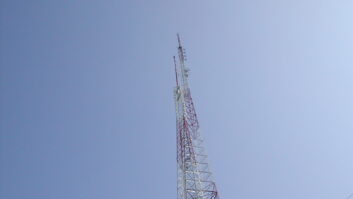We wrote here years ago that NAB and other opponents had rushed to condemn low-power FM before all the facts were in, then went about producing evidence to support their preconceived notions.
Recently, the FCC-commissioned Mitre report showed that “LPFM stations do not pose a significant risk of causing interference to full-service FM stations or FM translator and booster stations operating on third-adjacent channels.”
That report wasn’t perfect, as its critics say. But we feel that Mitre’s conclusions are correct.
The FCC and Congress have heard that LPFMs will not be the death of the radio dial after all. The commission is urging Congress to lift the separation restrictions, saying it will investigate claims of interference on a case-by-case basis.
We agree and encourage all parties to work toward a smooth integration of services that may bring new vitality to our medium. The time is right.
Radio, easily stereotyped by the image of a goofy morning zoo with bathroom sound effects and potty-mouthed announcers, has become the poster child of what’s wrong with media consolidation. Our industry does so much that is right and good. But how has it appeared in national headlines lately? With red-faced apologies on Capitol Hill, and quivering at the threat of license revocations and spectacular increases in fines.
We could do a lot worse than associate ourselves anew with small stations that broadcast for a few miles, offer unexpected and diverse on-air talent, and feature content of interest to their immediate neighborhoods. LPFMs are a lot closer to the ideals of radio as first conceived than most broadcasters probably care to admit.
The Communications Act of 1934 established radio’s philosophy of serving “the public interest, convenience and necessity.” Small, localized services are not a threat to that philosophy, rather they are a part of it.
We have no illusions that LPFM stations are somehow immune to the same programming traps that have snared so many bigger broadcasters. Many will sound unprofessional. And what’s to say that LPFM stations cause an indecency ruckus of their own? Yet they deserve the chance to try.
Reuters recently reported that 226 LPFMs have been licensed, 669 are being built and 950 license applications are pending approval; and the third-adjacent rule has yet to be changed. Tiny stations are moving on to the dial. The world isn’t falling apart.
In the spirit of radio, let’s welcome our new neighbors. We might even learn a thing or two.
– Radio World












